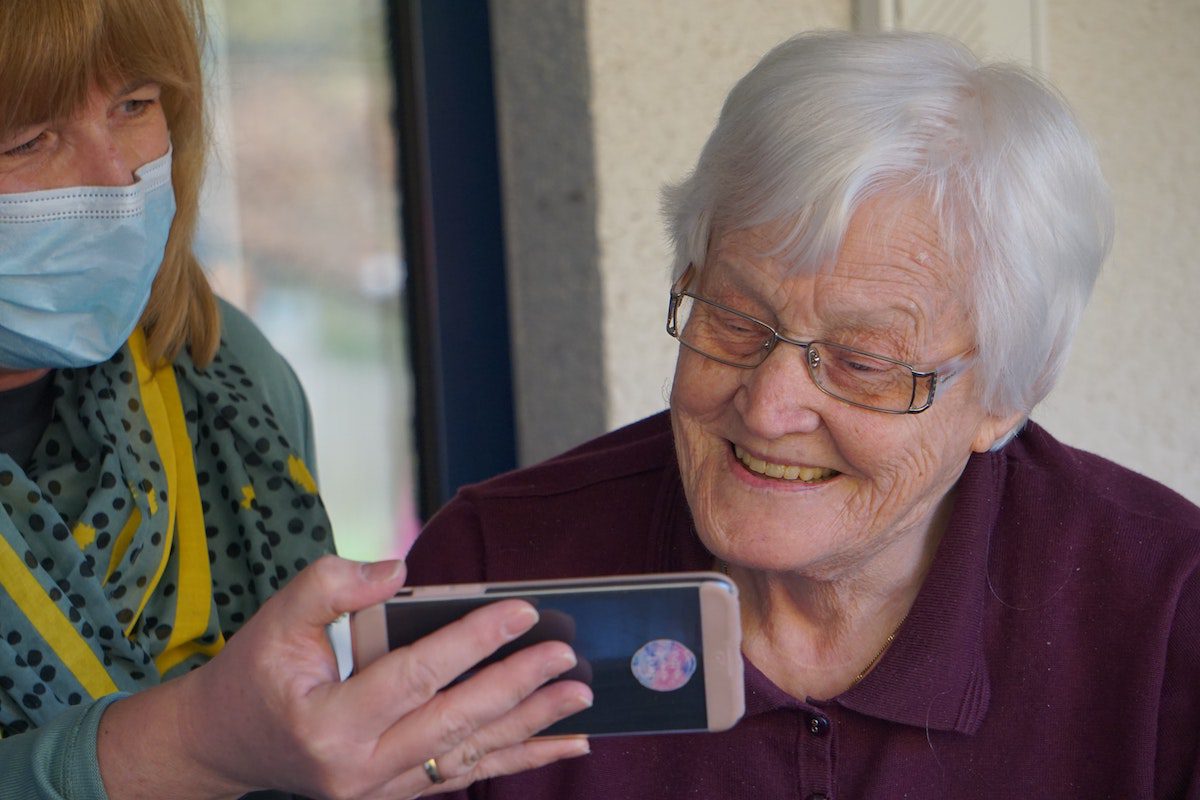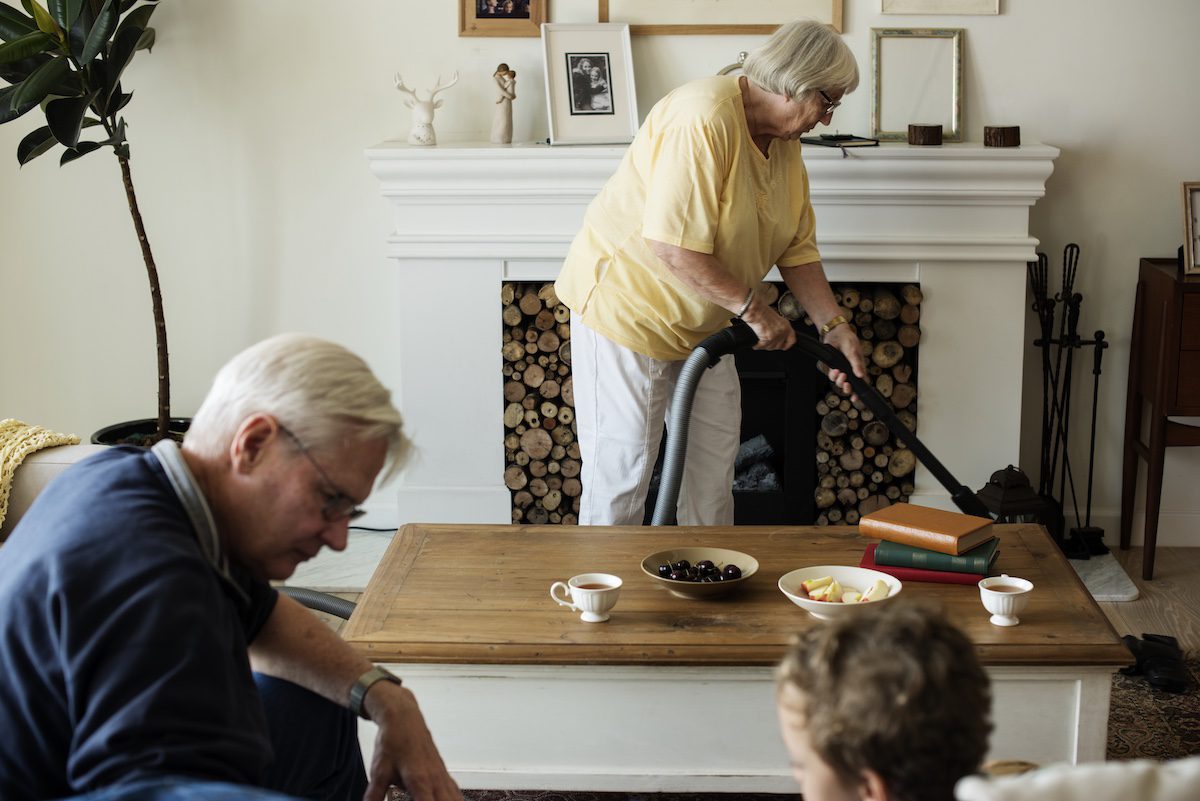Dementia is a neurological disease that affects memory, thinking, and behavior. It is a progressive disease, which means it gets worse over time. Dementia can affect people of all ages, but it is most common in older adults.
Although there is no cure for dementia, there are many activities that can provide stimulation and engagement.
Activities for People With Dementia
Here are some ideas for activities that can help improve the quality of life for dementia patients:
Gardening
One of the best ways to keep dementia patients stimulated and engaged is through gardening. Gardening can provide a sense of purpose and accomplishment, as well as physical activity.
If you do not have a large area for gardening with your loved one with dementia, consider container gardening. You can grow a variety of plants in small containers, which will make it easy to move around as needed.
Crafts
Craft activities are another great way to engage dementia patients. Crafts can help stimulate creativity and memory recall.
There are many different types of crafts that you can do with your loved one, such as quilting, knitting, sewing, or woodworking. Or you could try something new like glass blowing or pottery.
Music Therapy
Music therapy is a popular activity for dementia patients. Musical activities can help improve mood, cognitive function, and communication skills.
It’s easy to incorporate music into your day-to-day life with a loved one with dementia. Just turn on some music and sing along or dance together.
Animal Therapy
Animal therapy is also a popular activity for dementia patients. Animal therapy involves interacting with animals such as dogs, cats, horses, and rabbits to provide therapeutic benefits.
Pets can provide companionship and socialization opportunities, which are beneficial for people with dementia. Studies have shown that animal therapy can improve moods, socialization skills, communication abilities, and motor skills.
Reading and Writing
Reading and writing are great activities for dementia patients. They can help improve memory, communication skills, and cognitive function.
If you are not sure what to read with your loved one, try starting an easy reader book. Easy readers are designed for people who have just learned how to read or are struggling a bit with it.
They usually contain large print so that the words can be easily seen from a distance, as well as simple sentences and vocabulary that is familiar to most people even if they haven’t been taught in school yet.
Reading aloud together is another great option for dementia patients because it allows them to hear someone else’s voice while reading along at their own pace without pressure or frustration of trying too hard on something unfamiliar.
Playing Games
Games are a fun way to engage with others and stimulate the brain. Many games require strategy, which helps improve problem-solving skills.
Some popular games for dementia patients include crossword puzzles, Sudoku, and Scrabble. Other board games like chess or checkers can also be fun because they involve strategic thinking to win.
Singing and Dancing
Singing is a great way to engage with others and stimulate the brain. Singing along with music helps improve memory recall and communication skills in people who have Alzheimer’s disease or other types of dementia.
Dancing is another excellent activity that requires physical movement while still being fun! Dancing together has many benefits such as improving moods, cognitive functioning abilities, and socialization skills. It also provides exercise which will help keep your loved one healthy as well!
Painting
Painting is another great activity for dementia patients. It can help stimulate the brain, improve motor skills, and provide a sense of accomplishment.
If your loved one is not able to hold a paintbrush, you could try painting with a Q-tip or even their fingers. There are also many different types of paints that are specifically designed for seniors, such as those that are washable and non-toxic.
Grocery Shopping
Grocery shopping is an excellent way to keep dementia patients active and engaged with others. Grocery shopping provides socialization opportunities while also giving them a sense of purpose and independence.
Grocery shopping also helps improve cognitive functioning abilities because it requires them to make decisions like what they want on their plate or how much food would be enough for one meal.
Grocery shopping can help with problem-solving skills as well by having your loved one figure out where an item is located in the store and which aisle he/she needs to go down to find it.
Puzzles
Puzzles are a great way to stimulate the mind and improve cognitive function. They can also help with problem-solving skills and memory recall.
Puzzles can be frustrating for some people, but if your loved one likes them then this is an excellent way to keep him/her engaged with others while also improving their mental capacity.
Traveling
Traveling is a great way for dementia patients to explore new places and experiences. It can also help improve communication skills and cognitive function.
If your loved one is not able to travel far, consider taking day trips to places that are close by. You can also visit different museums or tourist attractions in your area.
Having a Pet
Having a pet can provide many benefits for dementia patients, such as companionship, stimulation, and affection. Pets can help reduce stress levels and encourage socialization with others.
Dementia patients who have pets often tend to be more active because they need to take their furry friends on walks or play with them outside. This provides excellent exercise for both the pet and the person!
Socializing With Others
Spending time with family members is an excellent activity for dementia patients. Socialization can help maintain relationships while also stimulating the mind and body through conversation or physical activity like walking together in nature or dancing at home when music therapy isn’t enough!
Improving the Quality of Life for Your Dementia Patient
We are passionate about improving the quality of life of all of our patients. Through these activities and more, we hope to provide engaging and meaningful experiences for those living with dementia.
To learn more about our compassionate palliative care services, contact our team today!




